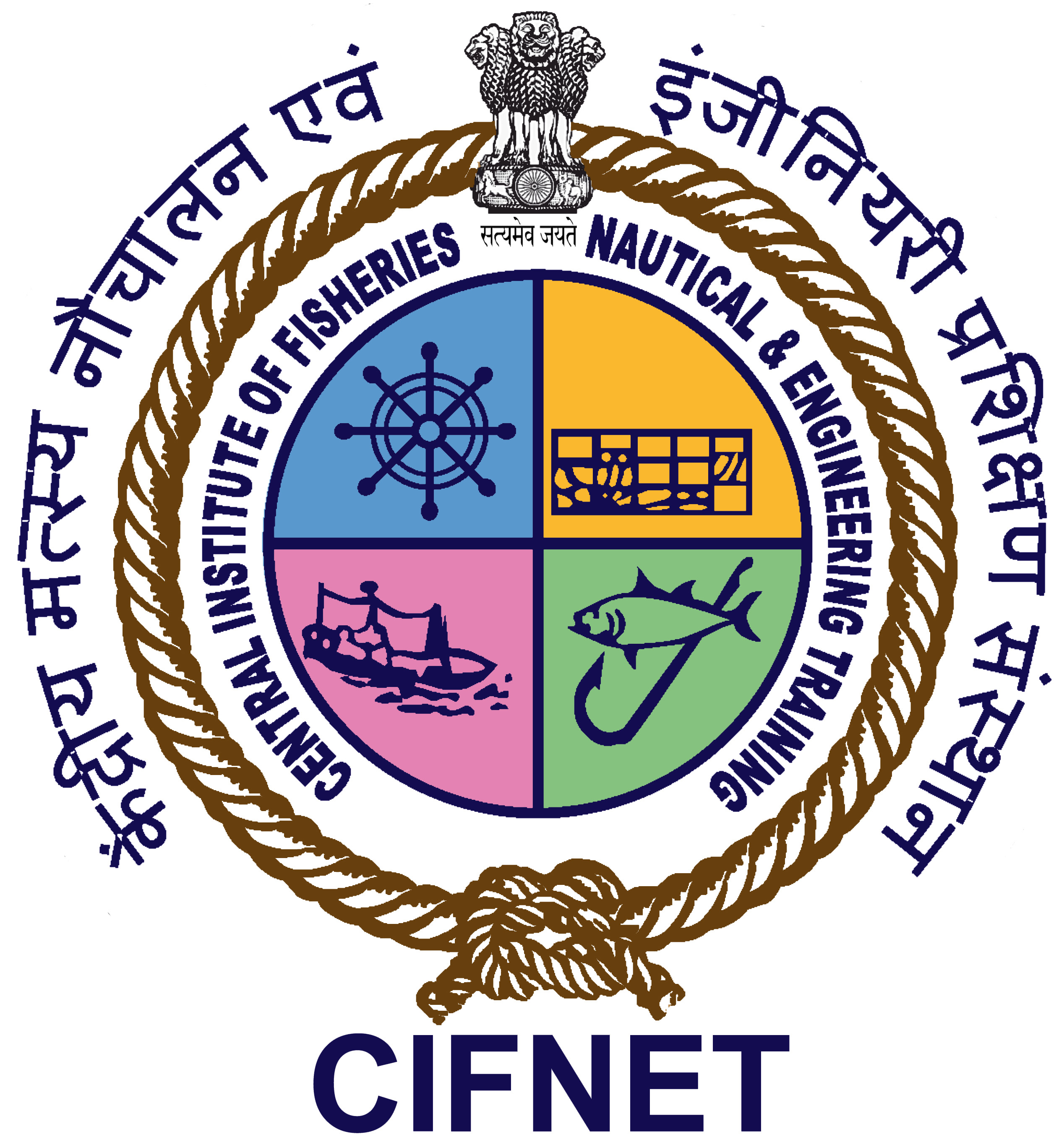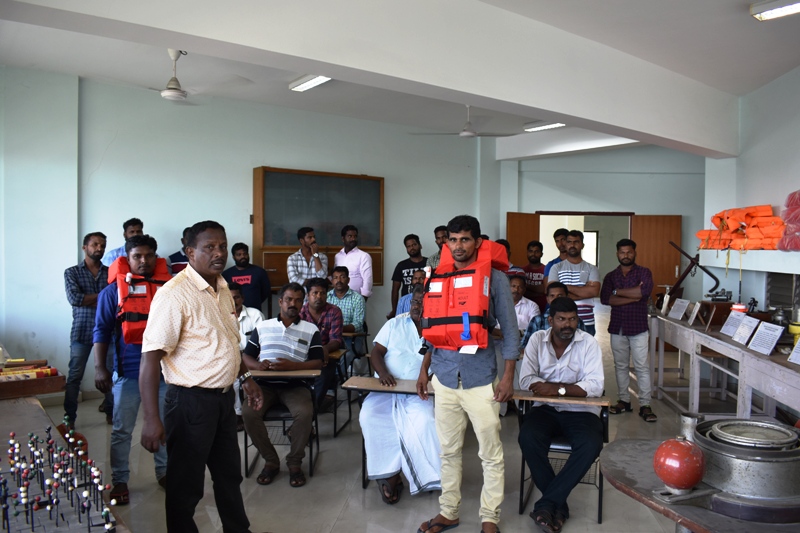CIFNET HQ, Kochi
The Institute is functioning with its Headquarter in Kochi from 1963. The HQ is housed in permanent training complex of 5730 sq.m in a spacious site of 4.35 Acres area.


The Institute HQ at Kochi is well-equipped with marine engineering workshop, Hydraulic, pneumatic, refrigeration and heat engine Labs. The institute is also endowed with Fishing gear fabrication & repair shop, Electrical, Electronics, Computer Labs, Navigation chart hall and library. Modern facilities like Engine room simulator and Navigation simulator have also been established. For onboard practical training, a fishery training vessel, M.V.Prashikshani of 34m length (OAL) is attached with the Institute.
For the benefit of the students, a newly built hostel with the capacity of 165 students is available in the institute campus.
Guest rooms for touring officials of the institute and the sister organisations are also available in the campus. A total of 11 guest rooms (10 AC and 1 Non AC) are available.
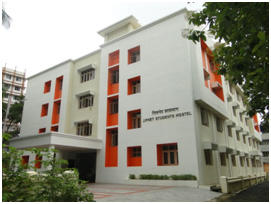
Technical Divisions
1. Seamanship and Nautical Division
The Department of Nautical Science has well equipped facilities at all three centres of CIFNET for imparting training in Seamanship, Navigation, Marine Meteorology and Oceanography and provided with excellent visual aids for onshore training.
At CIFNET Hq, Cochin, for practical demonstrations, the division is well equipped with Life saving appliances such as life raft, life jacket, life buoy, EPIRB, SART etc. and Fire fighting appliances such as fire extinguishers, fire hose, nozzle, ISC etc. Various navigational equipments such as magnetic compass, marine sextant, pelorus, azimuth mirror etc for practical demonstration.
The division possesses an exclusive chart hall and facilities for navigation chart practice.
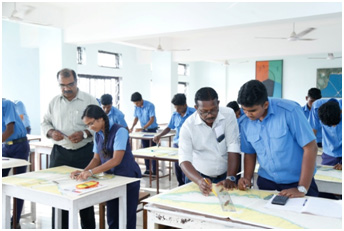
Navigation Simulator
The new Navigation Simulator was launched at CIFNET, Kochi on 30.7.2018 There are different types of simulators available for teaching navigational subjects, the mini navigation simulator at CIFNET HQ is designed to be used for Fishery sector, for teaching basic navigation, rule of the road & signals, safe navigational procedures, handling of various bridge equipments etc. The software has the provision for updating to suit latest developments and provisions for adding fishing software is also there in this simulator.
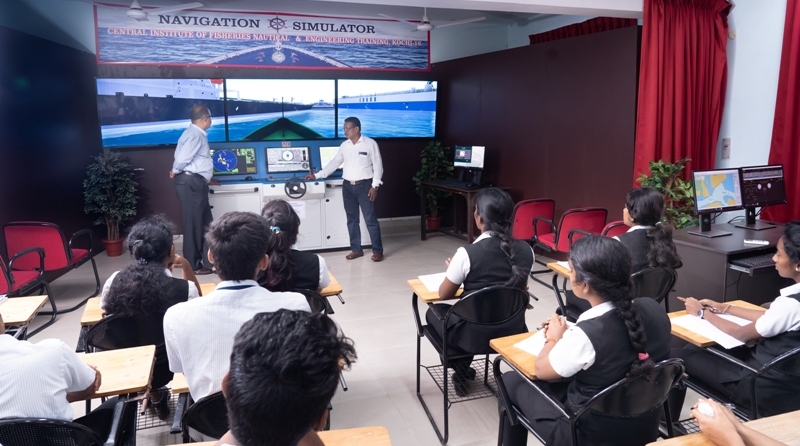
Since Navigation is a core subject and for a safe navigation, it is required to learn rules and regulations connected with it and also practice it. Practicing onboard vessel with different climatic condition, during day and night, different situations of crossing vessels etc. is not an easy task and it is required years to face such situations. A practical solution is generating these situations in the simulator and navigates the vessel using the simulator. All real time situations can be created in the simulator and can be practiced, thus the trainees will get good practical exposure to face such situations. This increases their confidence to face such situations and take necessary actions without any confusion. Presently this mini navigation simulator is being used for VNC, MFC and BFSc (NS) students and also for short term training courses.
2. Fishing Gear Division
The Fishing Gear Division of the three Centers of CIFNET is responsible for handling the specialised subjects of Fishing gear materials and Design, Fishing technique, Deck Equipments etc. for the trainees of the core, ancillary and all short term courses. All the three Centers are equipped with well-established laboratory facilities with fishing gear and craft models for undertaking practical training in fishing gear materials, design and repairs.
At CIFNET HQ, Cochin, the division is facilitated with fishing gear hall, Biology Lab, Micro Biology and Bio Chemistry Lab and Fish Processing Lab for the conduct of practical classes.
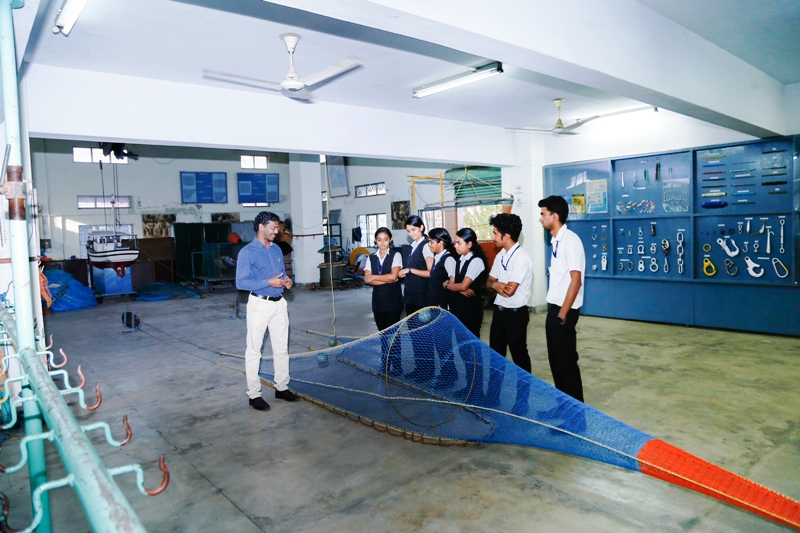
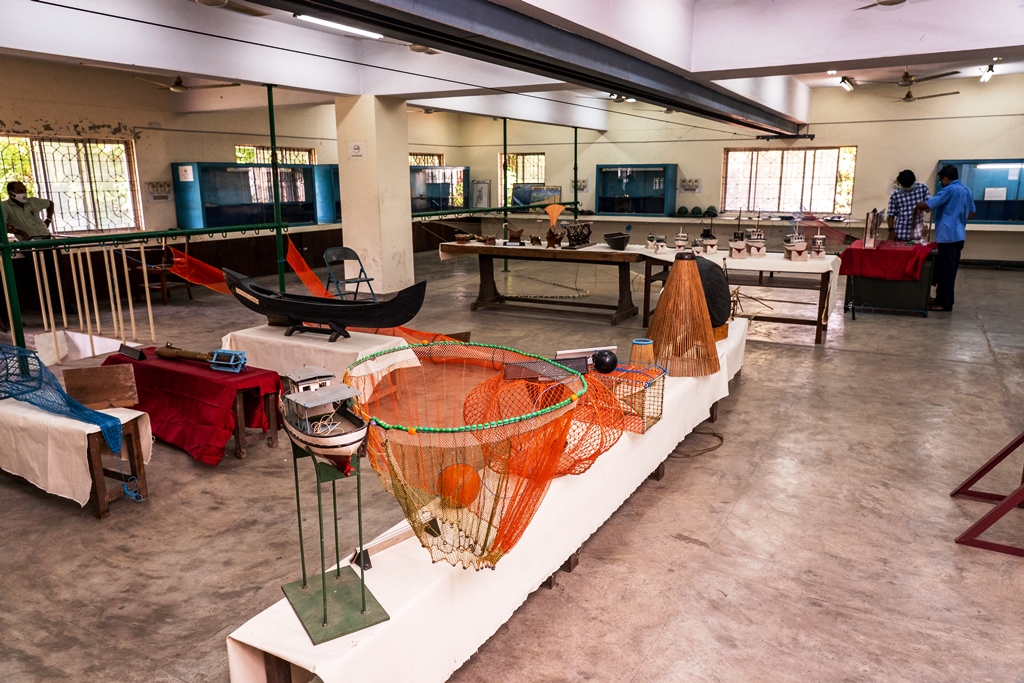
Fishing gear hall: The fishing gear hall is well equipped with visual models of various fishing gears, craft and fishing gear materials & its accessories for demonstration. Practical training on fabrication and mending of different fishing gears are imparted. This division also carryout design and fabrication of fishing gears for deep sea fishing.
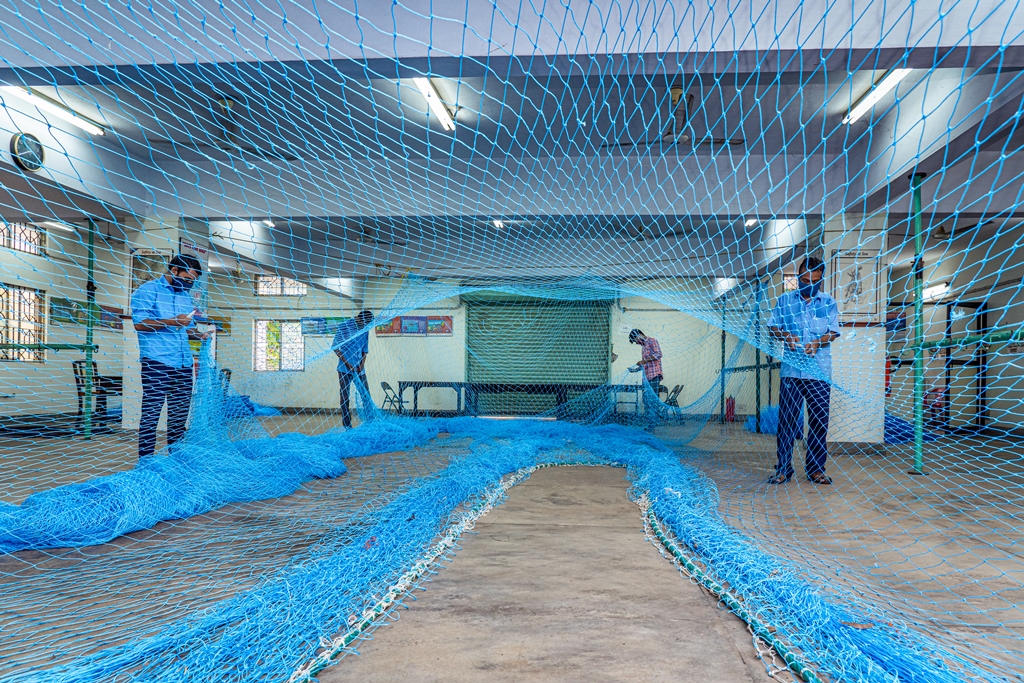
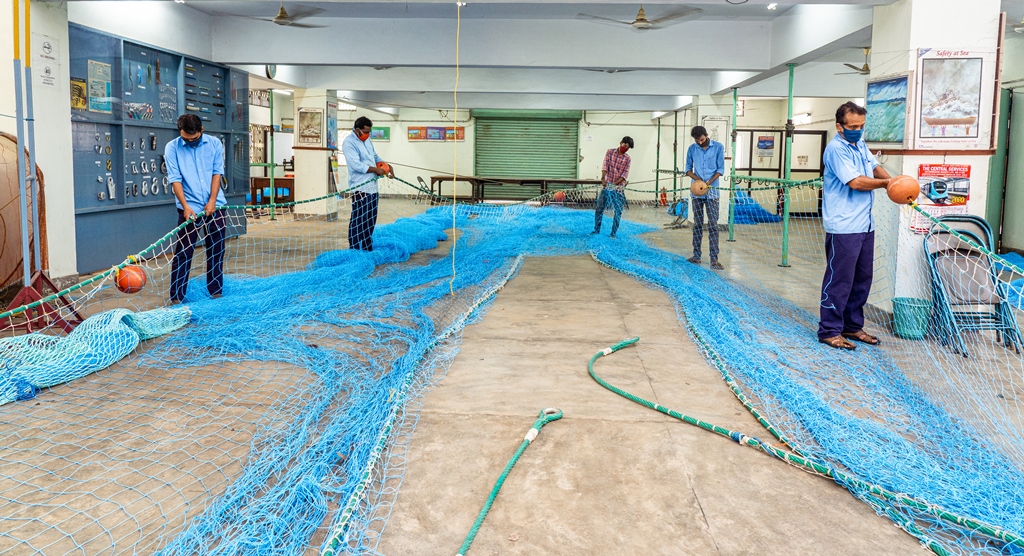
Biology lab: The Biology lab is equipped with facilities for collection and identification of planktons, facilities for taxonomic identification and biological study of Fin fishes and Shell fishes and facility for collecting and identification of Benthos. The laboratory is equipped with Microscopes, BOD incubators, measuring devices, dissection tools and other accessories.

Micro Biology lab: Micro biology Laboratory is provided with lab instruments for culture and identification of different groups of bacteria in fish and fishery products. Various lab equipments include Microscopes, Laminar Flow, Autoclaves, Incubators, fume hood, distillation unit etc for conducting practicals on Culture and identification of different group of bacteria.
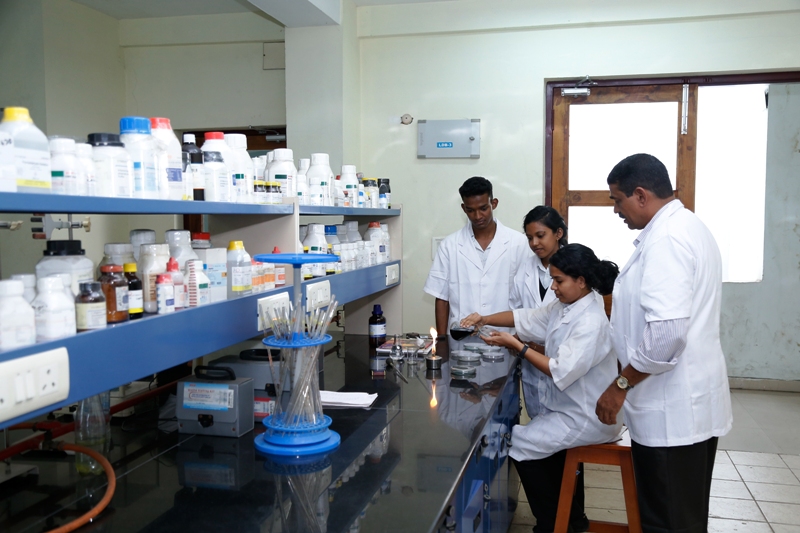
Bio Chemistry Lab: Facilities for determination of proximate composition of fish and fishery products like Hot air oven, muffle furnace, Kjel dhal Apparatus and accessories.
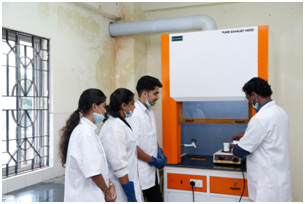
Fish Processing Lab: Various fish processing equipments such as Processing table, Deep Freezer and Refrigerator, tuna handling kit for sashmi grade and accessories are provided in the lab. Practical on hygienic handling, post harvest processing methods, preparation of value added fish and fish products are being carried out.
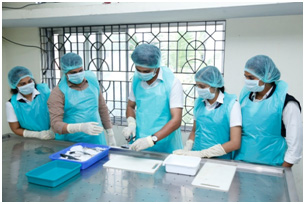
3. Marine Engineering Division
This division is dealing with Marine Engines, Electrical technology, Electronics & Computer applications, Hydraulics, Refrigeration and Craft Technology. The above disciplines of engineering are handled by the established sections having good facilities in Marine Engineering Workshop, Marine Engineering Laboratory, Electrical Lab, Electronics Lab and Carpentry Section for practical classes.
Marine Engineering Workshop
Marine Engineering Workshop includes Engine section, Machine Shop Section, Welding, Smithy, Fitting and Carpentry section. The facilities in Machine shop includes Lathe machines, Milling machine, Drilling machine, Shaper and Engine section consists of different HP engines of Single cylinder and Multi cylinder, Two working model engines, OBM’s and various types of compressors.
This Marine Engineering workshop is extensively used for the practical training of Marine Fitter Trainees in the fields of Marine Engineering, Fitting, Turning, Smithy, Thread cutting, Welding and Maintenance of engines.
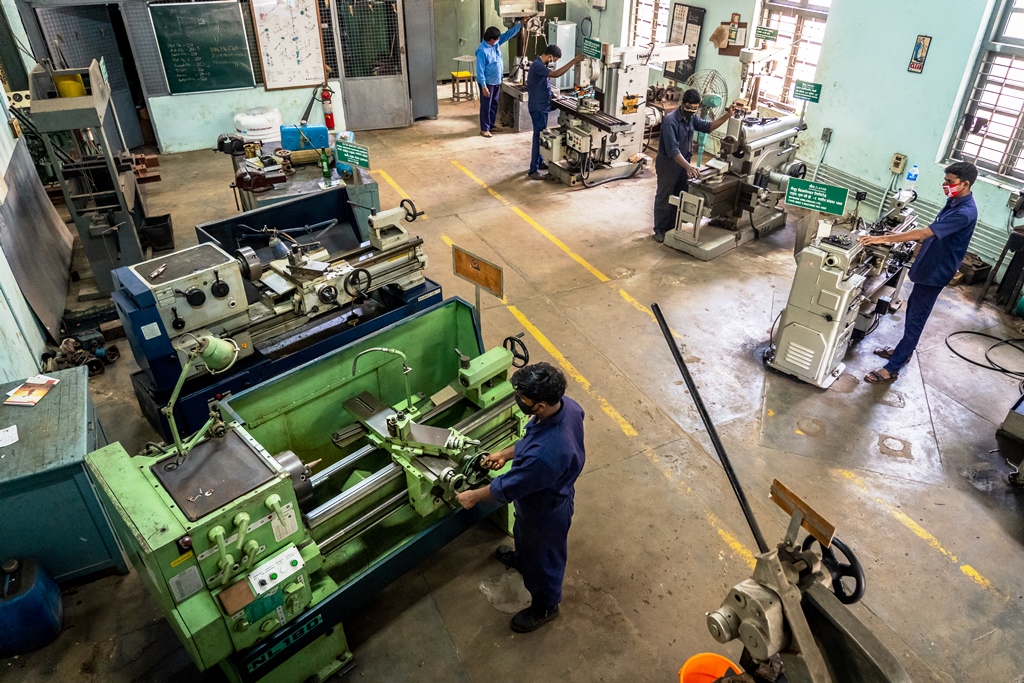
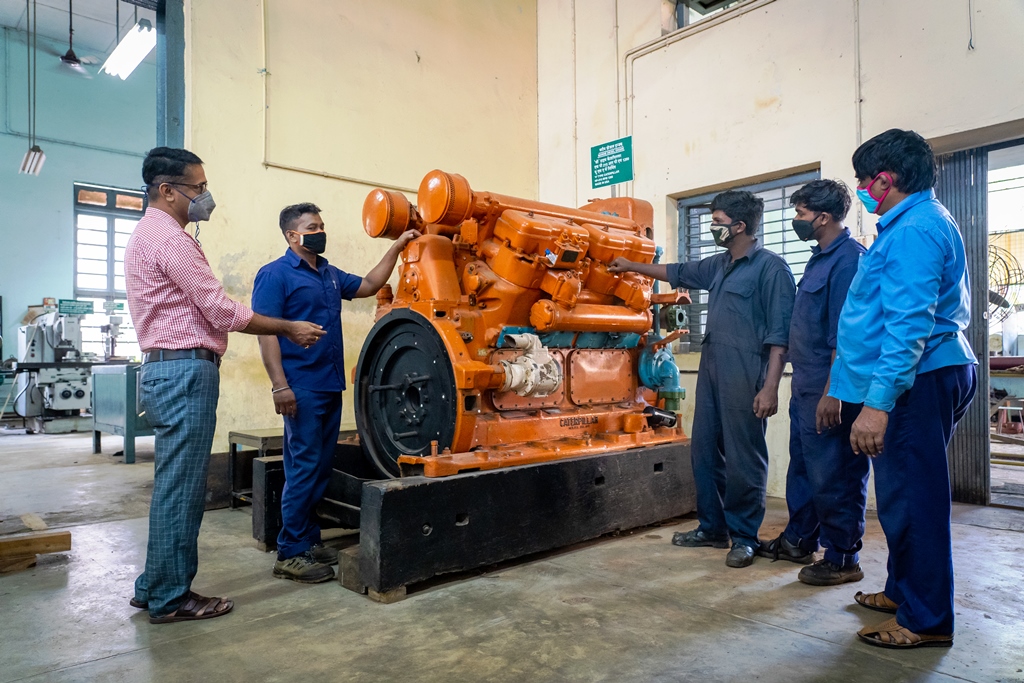
Apart from practical training the Marine Engineering Workshop also assists in the maintenance of Vessels and maintenance works in the Staff Quarter works as well the Office.
A full-fledged maintenance division maintains the institutional training vessels with a workshop having well trained manpower and sophisticated machineries. The workshop is also recognised by the MMD for training the Apprentice of the institute after passing out from the Regular course of the institute.
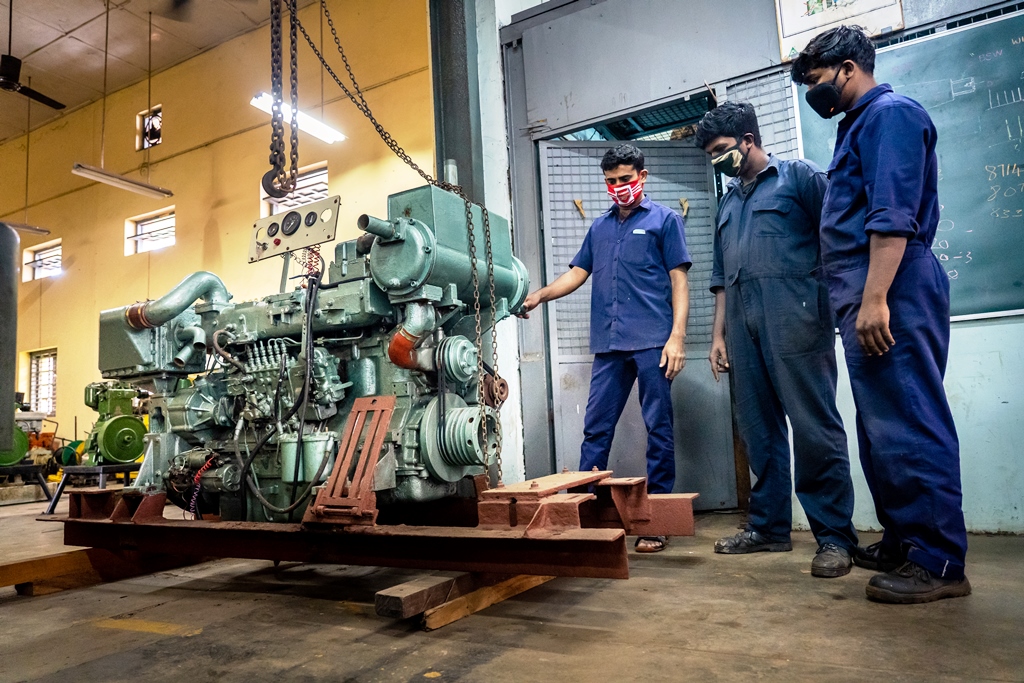
Carpentry
Carpentry section consists of Thickness planer, Band saw machine, Circular saw machine, Router, Hand plane, Drills, Sander machine etc. In the Carpentry section the trainees are given practical training on all the machines and as per the syllabus, model practicals are also conducted. Apart from these, Carpentry section also involves in the carpentry works in the Office premises, Staff Quarters and the Vessel.
Marine Engineering Laboratory
Marine engineering labs include four different labs. They are Heat Engine lab, Refrigeration lab, Pneumatic lab and Hydraulics lab.
Heat Engine Laboratory
The heat engine lab consists of one 4 stroke MPFI petrol engine (hydraulic loaded), one 4 stroke twin cylinder diesel engine fitted with rope brake drum, one reciprocating pump test rig, one Heat pump test rig, one floating body stability test rig. The main purpose of the heat engine lab is to impart practical training to the students to familiarize and conduct the Load test and Morse test in petrol engines, diesel engine (Load test only), COP of various pumps and to find out stability of floating objects at different weights.
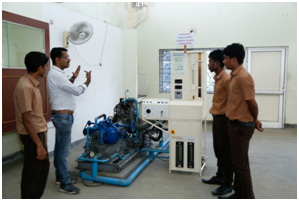
Refrigeration Lab
Refrigeration lab consist of an Ice plant tutor, Refrigeration trainer kit with fault tutor, Domestic Refrigeration Trainer with fault tutor, Split type AC tutor, Vapour Absorption Refrigeration experimental setup and Mini cold storage trainer.
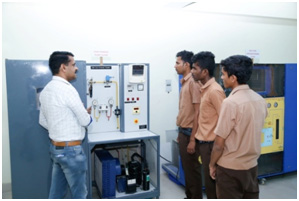
The purpose of Lab is to impart practical training to students to find out COP of various refrigeration equipments at different loads and to do fault simulation on Refrigeration systems and to familiarize the practical knowledge of equipments and components in Refrigeration systems.
Hydraulics Lab
The lab consists of three electro hydraulic trainer kits with three hydraulic pumps. The trainer Kit is useful for students to understand the basics of hydraulics system, it components, building circuits, understanding the working of circuits and its applications. The lab also consist of cut-section of different types of hydraulic valves, different types of impellers and cut section of four different types of pumps along with motor for familiarizing the students.
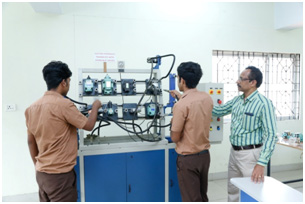
Pneumatic Labs
The lab consists of three electro pneumatic trainer kits with three single stage reciprocating air compressor. The trainer Kit is useful for students to understand the basics of Pneumatics, its components, building circuits, understanding, working of circuits and its applications. The lab also consist of cut-section of different types of pneumatic valves for familiarizing the students.
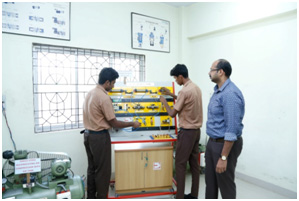
Engine Room simulator
The simulator lab equipped with virtual engine room (VER 3.5)software, all are PC based full mission engine room simulators, developed to comply with STCW and ISM code as far as possible. This means that all the important systems in the engine room of a Ship have been modeled and implemented. Using this Engine Room Simulator software the students are allowed to learn and understand different types of systems associated with the Engine room of a ship. All real time situations in the systems of engines can be created in the simulator and can be practiced, thus the trainees will get good practical exposure to handle the systems. This increases their confidence to take necessary action without any confusion when they are working in the Engine room.
Electronics and computer section
At CIFNET HQ, the electronic lab is well equipped with various electronic equipments used onboard fishing vessels such as GPS, Echo sounder, communication equipments like VHF, HF and MF Radio transceivers etc. These equipments are used for practical training on their operation and maintenance.
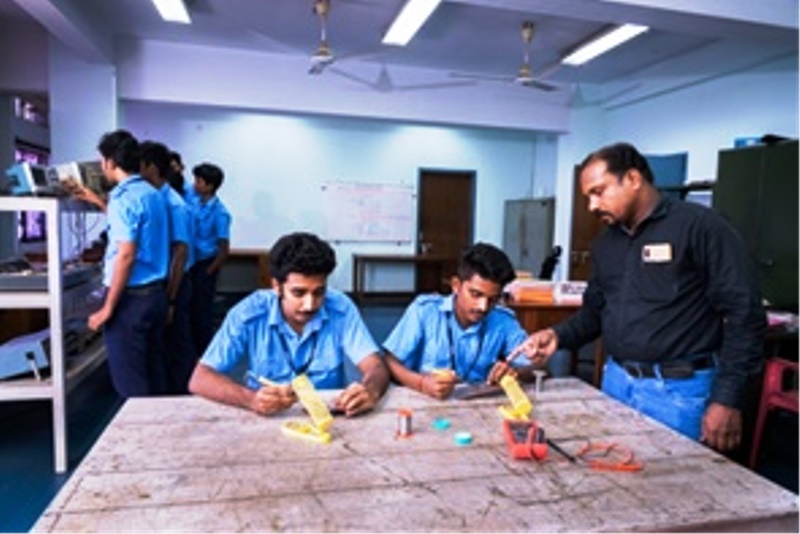
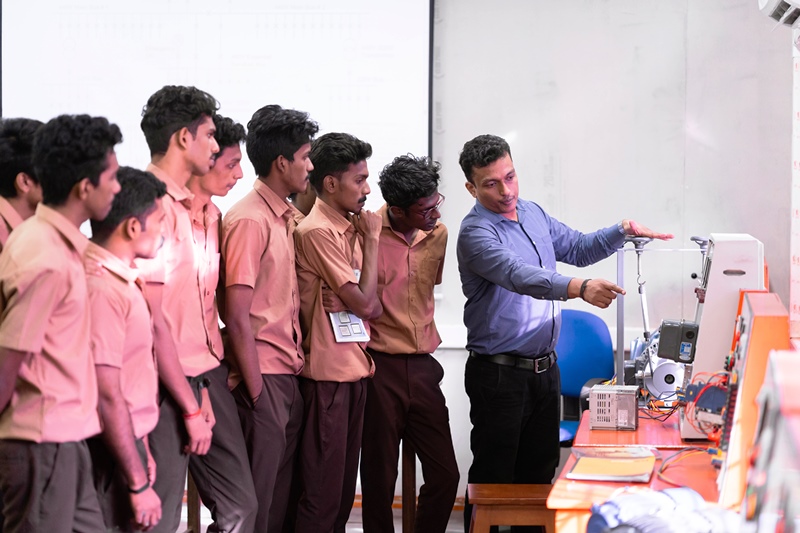
An exclusive radio room is established for communication with the CIFNET fishing vessels during their sailing out at sea.
Computer lab: The institute has an advanced computer laboratory with internet facilities, having a capacity to accommodate 20 students at a time.
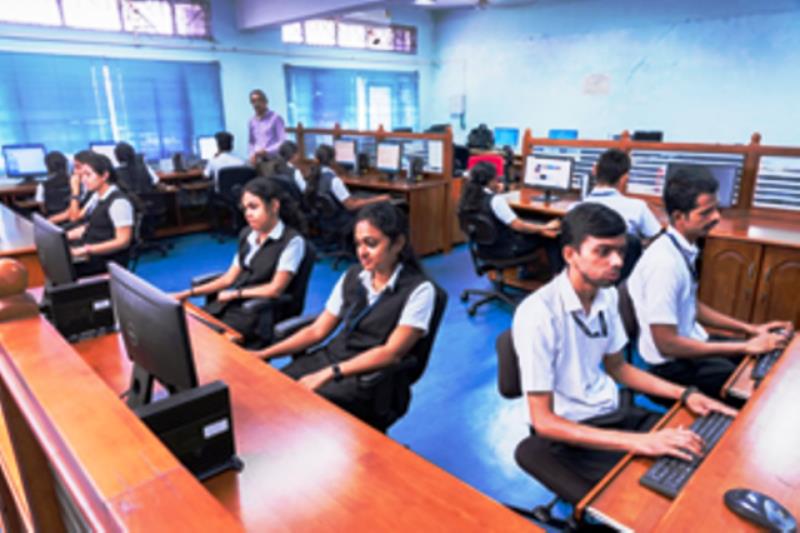
Electrical Engineering Section
The Electrical workshop gives practice on different types of domestic, commercial and industrial wiring. The purpose of this lab is for familiarizing basic concepts of electrical circuits, and to illustrate and reinforce these concepts by providing hands-on experience to the students.
Electrical Lab is equipped with modern facilities for hands on practice and testing on different types of electrical machines. Electrical Lab provides the students with experimental verification of the theoretical concepts studied as part of their syllabus, along with its industrial applications.
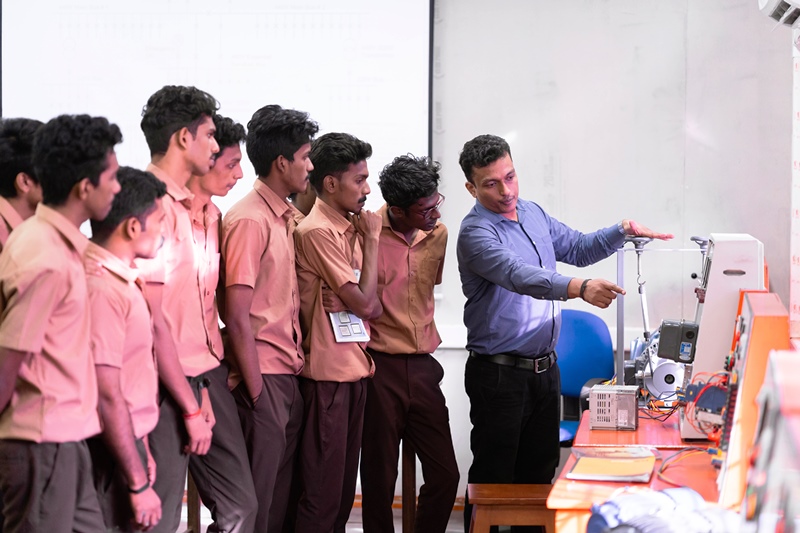
The facilities includes DC machines, AC Three phase induction motor, Ac Single phase motors, AC Synchronous Motor, Circuit Breakers and Protection System, DC Battery System etc.
4. Training Division
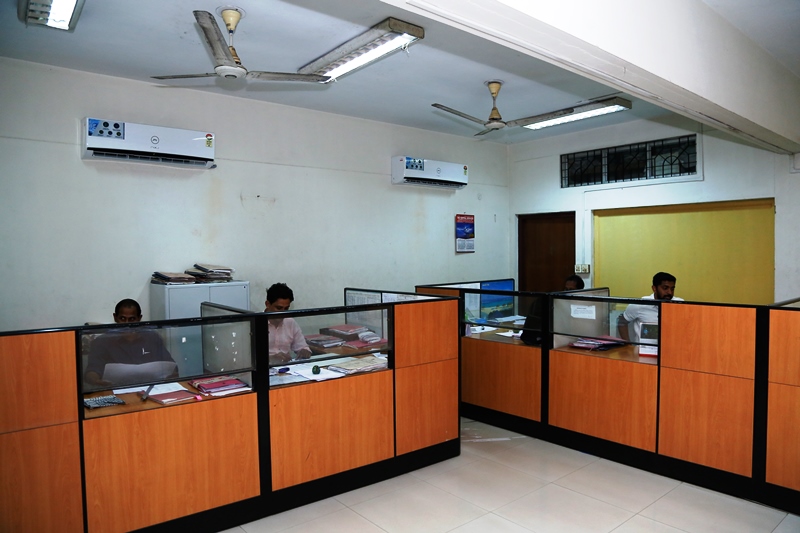
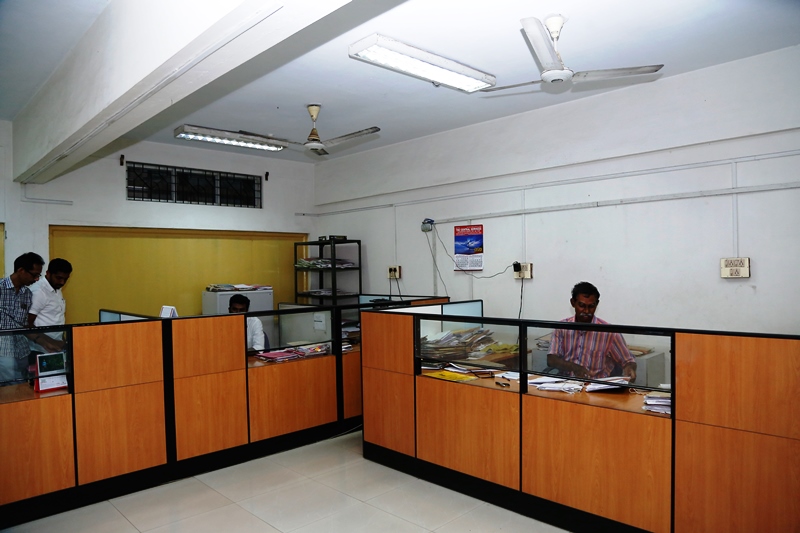
The training programmes are scheduled, coordinated and monitored from the headquarters by the established training division. The examinations and the post-institutional training are also chalked out and monitored by this division. The training division at the Units also helps in above programmes. The training division runs the employment guidance bureau established at the headquarters.
5. Library
The Institute at Kochi and its Units at Chennai and Visakhapatnam have well equipped Library and documentation system having a good collection of Technical books/Journals in various subjects viz. Nautical Science, Marine Engineering, Fishing Craft, Gear Technology, Workshop Technology, Electrical Technology, Electronics, Computer Science, Fishery Biology, Fish handling, Marine Meteorology, Oceanography, Refrigeration, Hydraulics etc. Reference facilities are also provided to the visiting scholars and students of various Institutions from these libraries.
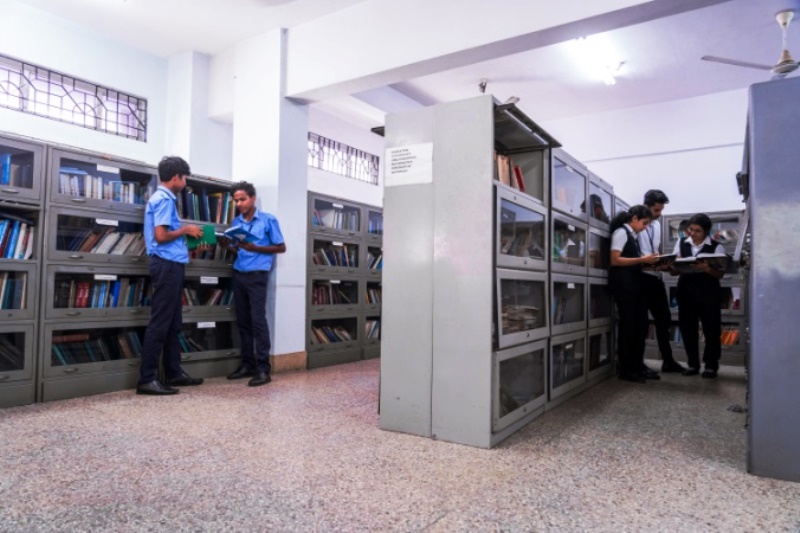
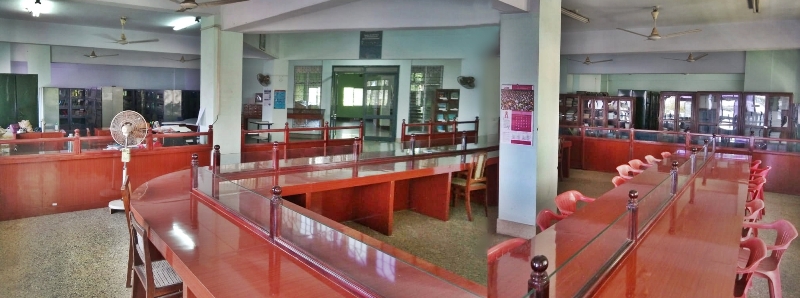
Official Language Section
CIFNET Headquarters has an Official Language section, which is responsible for carrying out the activities relating to implementation of Official Language. In order to enable the officials to carry out their duties in Hindi, those who do not possess working knowledge in Hindi are nominated for Prabodh/Praveen/Pragya training under Hindi Teaching Scheme. The Ministerial staff are also nominated for Hindi Typewriting/Hindi stenography in a time bound manner. Hindi Karyasala is conducted every quarter, for the staff members. Hindi Fortnight/Hindi Week celebrations are also held at Headquarters and Units every year in the month of September. OLIC meetings are conducted during every quarter at Headquarters and Units to evaluate the progress in the implementation of OL.
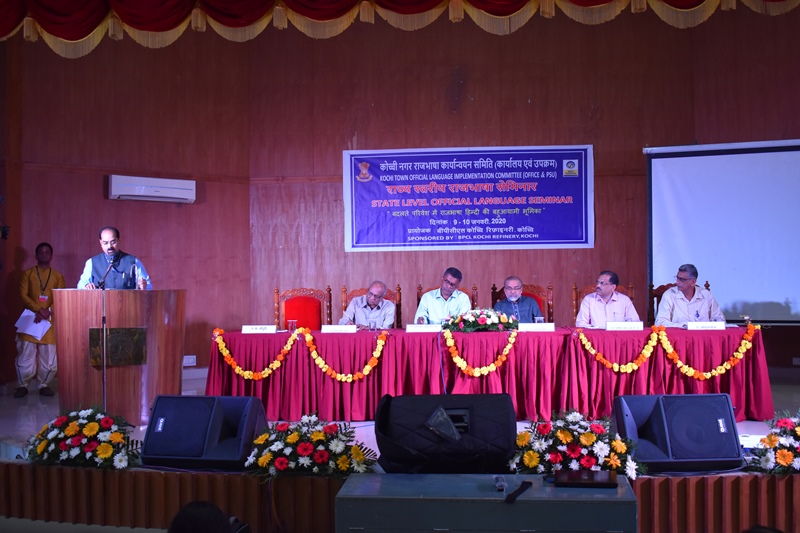
6. Training Vessels
The Institute has three fishery training vessels and all the vessels were mainly utilised for imparting onboard practical training for Institutional trainees and for providing qualifying sea service for Post Institutional trainees of the Institute.
The vessels Prashikshani is attached to the Head Quarters at Kochi, the other two vessels Skipper II and Tharangini are based at Chennai unit and Visakhapatnam unit respectively.
The fishery training vessels operated different types of fishing gear viz. Tuna Long lining, Bottom trawls and Shrimp trawl and impart all these fishing techniques to the trainees.

Specifications of Fishery Training Vessel
|
Name of Vessel |
LOA |
BHP |
GRT |
Year built |
Place |
Endurance |
Type of Fishing |
|
PRASHIKSHANI |
34.00 |
750 |
211.99 |
1980 |
Japan |
20 |
Tuna long lining |





